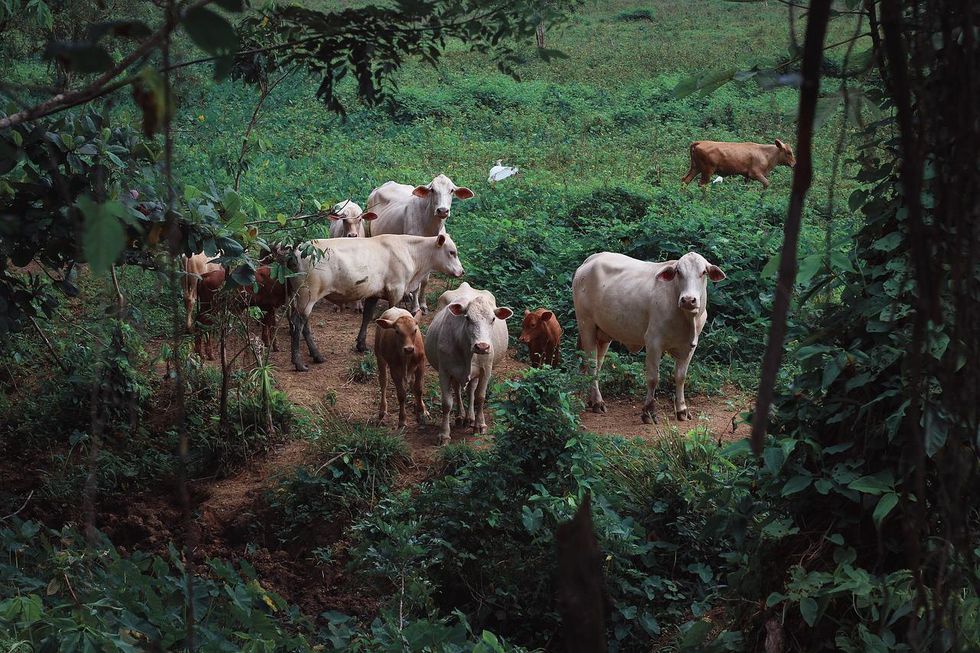Peter Dykstra: A foodie tastes climate change
Some samples of where food is going… or gone.
Pity the poor climate reporter. Tasked to write about the costly future and gloomy topic of climate change, we often turn to food to try to relieve our misery. But in our case, that means writing about it, not eating it.
This past week, I distinctly heard the sound of a butter knife clinking against the bottom of a four-ounce jar.
Dijon mustard had joined the list of edible climate victims.
NPR sent its veteran Paris correspondent Eleanor Beardsley to the Bordeaux region. Not to report on the threat to Bordeaux wine, mind you, but on the region’s Dijon mustard. It turns out that genuine Dijon requires mustard seeds from Canada, and last year’s brutal, record-setting “heat dome” ruined the hot mustard crop.
And there’s more concern at the other end of the condiment aisle.
Olive output has suffered in recent years as more frequent winter waves of warm and chilly Mediterranean weather impact the trees’ flowering and fruiting. And as olives go, so goes olive oil.
And with our olive oil, so goes tomato sauce for pizza and pasta. About thirty percent of the world’s canned tomato crop comes from California’s Central Valley, where near-catastrophic drought threatens not a bad year, but a bad forever in one of the world’s key food-producing zones.
So, if Marie Antoinette were around to witness this, would she offer a tomato sauce workaround? Maybe, “Let them eat white clam sauce?”
Well... even for those of us who can stand white clam sauce, clams and other mollusks are vulnerable to the oceans’ rising levels of acidification.
And then there’s the wheat flour that’s turned into traditional pasta. Breadbaskets like Ukraine and the U.S. heartland are increasingly subject to drought, and nutritionists predict that rising CO2 levels could rob wheat, rice and other grains of nutrients.
As early as 2011, a study predicted problems for all manner of fruits and nuts grown throughout the world’s temperate regions. Pistachios, walnuts, cherries and peaches are among the crops that need warm summers and chilly, but not frigid winters to prosper. Warming winter temps may be a problem from Israel to Georgia.
So let’s take a break
Enough about our food for now. Let’s have a drink to relax. Are you a wine person? Well, get some Bordeaux while you can. It’s expected that the world’s prime grape-growing regions may shift with the climate.
Beer? Subtle changes in hops, barley –the yeast that turns sugar into alcohol– and other brewing essentials may not kill your favorite microbrew, but we have no idea how it will taste.
And if you prefer to inhale your escape, the folks at www.mjbizdaily.com have some news for you. The publication, which seems to regard itself as the Wall Street Journal of weed, projects marijuana growers as following the vineyards’ paths on the where cannabis will struggle, and the new places where it could thrive.
The 800-pound steer in the room

Of course, our current diet is a big factor in the climate crisis. Beef, pork and chicken, all raised factory-farming style, greatly contribute to methane release and other air-pollution issues. In regions where cattle are still raised on pasture, they are to blame for the clearing of tropical rainforests, like the Amazon, wiping out one of the world's great carbon sinks.
I could lose five pounds just writing down why I’m a climate-writing, meat-eating, climate-destroying hypocrite.
Prefer seafood? Sensitive to water temperatures, forage fish like sardines and anchovies are de-camping for warmer waters. On the North American East Coast, lobsters are deserting the southern New England coast for the cooler waters of Maine. But lobstermen worry that the crustaceans are merely biding their time to dodge the thermal draft and eventually will head to Canadian waters.
For their part, North Carolina fishermen, rigged and experienced to capture summer flounder, have to chase their target hundreds of miles up the coast to New Jersey.
So some of our food is leaving us. Other food is running and hiding.
Thanks, climate change!
Peter Dykstra is our weekend editor and columnist and can be reached at pdykstra@ehn.org or @pdykstra.
His views do not necessarily represent those of Environmental Health News, The Daily Climate, or publisher Environmental Health Sciences.













